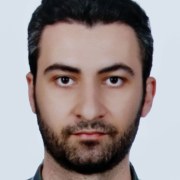Autohors: Auday Al-Dulaimy, Matthijs Jansen, Bjarne Johansson, Animesh Trivedi, Alexandru Iosup, Mohammad Ashjaei, Antonino Galletta, Dragi Kimovski, Radu Prodan, Konstantinos Tserpes, George Kousiouris, Chris Giannakos, Ivona Brandic, Nawfal Ali, Andre B. Bondi, Alessandro V. Papadopoulos
Journal “Internet of things”: https://link.springer.com/journal/43926
Abstract:
In the era of the IoT revolution, applications are becoming ever more sophisticated and accompanied by diverse functional and non-functional requirements, including those related to computing resources and performance levels. Such requirements make the development and implementation of these applications complex and challenging. Computing models, such as cloud computing, can provide applications with on-demand computation and storage resources to meet their needs. Although cloud computing is a great enabler for IoT and endpoint devices, its limitations make it unsuitable to fulfill all design goals of novel applications and use cases. Instead of only relying on cloud computing, leveraging and integrating resources at different layers (like IoT, edge, and cloud) is necessary to form and utilize a computing continuum.
The layers’ integration in the computing continuum offers a wide range of innovative services, but it introduces new challenges (e.g., monitoring performance and ensuring security) that need to be investigated. A better grasp and more profound understanding of the computing continuum can guide researchers and developers in tackling and overcoming such challenges. Thus, this paper provides a comprehensive and unified view of the computing continuum. The paper discusses computing models in general with a focus on cloud computing, the computing models that emerged beyond the cloud, and the communication technologies that enable computing in the continuum. In addition, two novel reference architectures are presented in this work: one for edge-cloud computing models and the other for edge-cloud communication technologies. We demonstrate real use cases from different application domains (like industry and science) to validate the proposed reference architectures, and we show how these use cases map onto the reference architectures. Finally, the paper highlights key points that express the authors’ vision about efficiently enabling and utilizing the computing continuum in the future.










